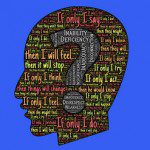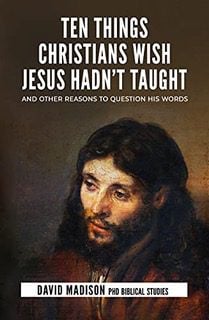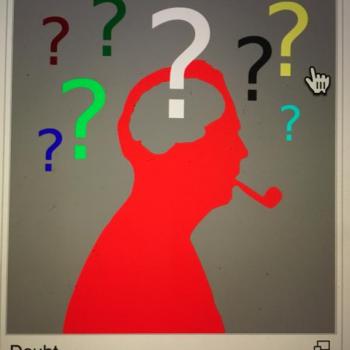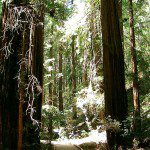Editor’s Note: This is the first of two liberal clergy who discuss their move away from religious faith. While we’ve noted a trend of increased liberalism as clergy doubts grow into disbelief, it’s also important to note that some clergy start out liberal-minded and their seminary studies and their denominations encourage it. For them, the road away from belief and away from church seems easier. It also seems easier for liberal non-believing clergy to stay in their clergy role without much compromising.
=============================
1. What caused you to start seriously doubting your faith?
I think doubt was built into my faith, so the exclusive supernaturalism simply dissolved from the inside out! Philosophy and World Religion studies in college planted seeds of fearless questioning that took root, flourished during many years of Interfaith Chaplaincy, and cracked the whole crannied wall into a pile of stones. Working in schools, jails and streets for a long time exposed me to a gritty brand of theology–a sort of seat of the pants approach, blended with all the Liberation Theology from seminary. Listening to people who just needed to survive, who couldn’t care less about competing beliefs and gods, left me with a “disturbed contentment” that I didn’t have the answers, didn’t need the answers, and if there were any answers to life’s persistent, perennial questions, they would probably (“no doubt”) be found out there among the excluded, the non-members, the judged, the worthless people. I came to value what our communities discard, disregard and disrespect. The outcasts were the only true “community” I was experiencing. I still would describe these people as the ones Jesus hung out with (and got hung up for) and devoted his life to. Once it fully sank in that the Church, that is, “His followers,” had little or nothing to do with that Jesus, I followed him out the door. Then, I naturally didn’t feel the need to follow him, or anyone. I simply followed the path of curious wisdom. Nature alone offered everything I ever sought in faith, god or church, and offered so much more: a cosmos that was, and continues to be, the only classroom and cathedral we need.
2. How did you initially react to the doubts?
I did a lot of reading and had conversations with people who felt differently. For twenty years as a Jail Chaplain and then a Street Chaplain I led inclusive “interfaith spiritual gatherings” for believers and non-believers. Open discussion made it possible to question pretty much everything, including my own beliefs. “I don’t know” became the mantra, as did a shrug, a smile or a joke.
3. What caused the doubts to start becoming stronger than your beliefs?
I wouldn’t say “doubts,” I would say questions. Since Philosophy courses in (Christian) college I valued the gift of questions and the value of a Socratic “I know that I do not know.” In seminary I knew almost immediately that the creeds and set-in-stone theologies had to be questioned. No one could tell me how to define a god-relationship.
4. How did the doubts affect your preaching/teaching/other responsibilities? Your interactions with your congregation and your family?
I made it a practice to read from a selection of “sacred texts” beyond the bible. Many people in my liberal church welcomed this. I taught classes on world religions and sacred scriptures of the world. Many people were intrigued. Family? Well, I don’t think most cared. I was simply “Chris being Chris” and a shrug and no matter.
5. How did you come to the realization that your doubts were overcoming your beliefs; that you were no longer a believer?
During my time in a forest cabin on a Northwest island I did a lot of thinking and writing about “the spirit of nature.” Then, like the morning fog, that dissipated without any big “moment.” I simply took the “spirit” part out and simplified it to “nature” and nature is enough. The super-nature was irrelevant and unnecessary.
6. How did you think of yourself at that time (e.g., agnostic, atheist, spiritual-but not-religious, non-believer, different-believer, something else?)
Mostly “Interfaith” and then a naturalistic thinker. “Atheist” is a label I rarely use. Freethinker seemed and still seems to fit best. But, yes, “spiritual” works sometimes in the sense of natural inter-connections and inter-relations, but the word is like slippery noodles so I use it only with footnotes.
Editor’s Question – To Chris and others: The progression Chris describes seems so natural and obvious (at least to me!) that I wonder why it doesn’t happen that way to many others who have a liberal theological education. Why don’t more people with the same kind of exposure to philosophy and world religions and liberation theology move away from organized religion and supernatural beliefs?
========================
Bio: Chris Highland served as an Interfaith Chaplain for 25 years. In 2001 he left his Christian ordination and “came out” as a non-theist freethinker. He is a teacher, writer, housing manager and a member of the Speakers’ Bureau of the Secular Student Alliance. Chris is the author of ten books and host of Secular Chaplain. Originally from Seattle, he lives in the SF Bay Area with his wife Carol, director of the Marin Interfaith Council.














